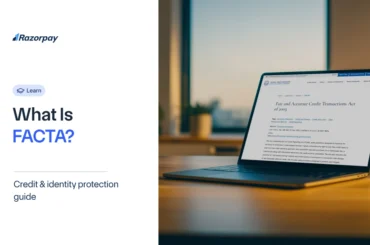What is an Escrow Agent?
An escrow agent is a neutral third party who holds assets and funds involved in a transaction until certain conditions are met. This helps protect the buyer and the seller and ensures the transaction is completed smoothly and fairly.
Escrow agents are commonly used in real estate transactions, but they can also be used in other types of transactions, such as business sales and asset transfers.
How Does an Escrow Agent Work?
The escrow process typically begins with the buyer and seller signing an escrow agreement. This agreement outlines the terms of the transaction, including the assets and funds that will be held in escrow and the conditions that must be met before the escrow can close.
Once the escrow agreement is signed, the buyer will deposit the earnest money deposit into the escrow account. The earnest money deposit is a portion of the purchase price that is paid by the buyer in good faith. The seller will deposit any required documents into the escrow account, such as the deed of trust and title insurance policy.
The escrow agent will then begin the process of verifying that all of the conditions of the escrow agreement have been met. This may include reviewing title reports, obtaining appraisals, and coordinating inspections. Once all the conditions have been met, the escrow agent will close the escrow and release the funds and assets to the appropriate parties.
Benefits of Using an Escrow Agent
There are many benefits to using an escrow agent, including:
- Protection for both the buyer and the seller: Escrow agents act as a neutral third party, which helps to protect both the buyer and the seller from fraud and other problems.
- Smooth and efficient transactions: Escrow agents have experience handling complex transactions and can help ensure the process is completed smoothly and efficiently.
- Compliance with regulations: Escrow agents are familiar with the laws and regulations that apply to escrow transactions, and they can help to ensure that the transaction complies with all applicable requirements.
Types of Escrow Agents
There are two main types of escrow agents: licensed and unlicensed.
Licensed escrow agents are regulated by the state and must meet certain requirements, such as having a bond and insurance. Licensed escrow agents are typically used for real estate transactions, but they can also be used for other types of transactions, such as business sales and asset transfers.
Unlicensed escrow agents are not subject to the same regulations as licensed escrow agents. Unlicensed escrow agents are often used for smaller transactions, such as online purchases and freelance contracts.
Here are other types of escrow agents based on the type of transaction:
- Real estate escrow agents: Hold the funds and assets involved in a real estate transaction until all of the conditions of the escrow agreement have been met.
- Business sale escrow agents: Hold the funds and assets involved in a business sale until all of the conditions of the escrow agreement have been met.
- Asset transfer escrow agents: Hold the funds and assets involved in an asset transfer until all of the conditions of the escrow agreement have been met.
- Online purchase escrow agents: Hold the funds involved in an online purchase until the buyer has received the goods or services they purchased.
- Freelance escrow agents: Hold the funds involved in a freelance contract until the freelancer has completed the work and the client is satisfied.
When Do You Need an Escrow Agent?
You may need to use an escrow agent if you are involved in any transaction involving the transfer of assets or funds. This includes real estate transactions, business sales, asset transfers, and even some types of online purchases.
Choosing the right escrow agent ensures a smooth and successful transaction. Here are some tips on how to pick the right escrow agent:
- Consider your needs. What type of transaction are you involved in? How complex is the transaction? What are your budget and timeline? Once you have a good understanding of your needs, you can start to narrow down your options.
- Get referrals. Ask your friends, family, and colleagues for recommendations. You can also check with your real estate agent or loan officer.
- Research escrow agents. Once you have a few names, take the time to research each escrow agent. Look at their website, read reviews, and compare fees.
- Interview escrow agents. Once you have narrowed down your choices, interview each escrow agent. This will allow you to learn more about their experience and services. Be sure to ask about their dispute handling process and escrow insurance coverage.
- Choose an escrow agent that you trust. Ultimately, the best way to choose an escrow agent is to choose one you trust. This means choosing an experienced, reputable escrow agent with a good track record.
Speak with an escrow expert for free
FAQs
How do I choose an escrow agent?
When choosing an escrow agent, it is important to consider the following factors: Experience: Choose an escrow agent with experience handling the type of transaction that you are involved in. Reputation: Ask for recommendations from friends, family, or colleagues. You can also check online reviews. Fees: Escrow agents charge different fees for their services. Be sure to compare fees before you choose an agent.
What happens if there is a problem with the escrow?
If there is a problem with the escrow, the escrow agent will work with both parties to resolve the issue. If the issue cannot be resolved, the escrow agent may be required to release the funds and assets to the appropriate parties in accordance with the terms of the escrow agreement.
How much does an escrow agent cost?
The cost of using an escrow agent varies depending on the type of transaction and the complexity of the transaction. Typically, escrow agents charge a percentage of the value of the transaction.





